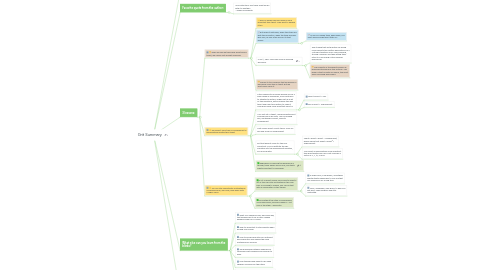
1. 1-Sentence-Summary:
1.1. Grit describes what creates outstanding achievements, based on science, interviews with high achievers from various fields and the personal history of success of the author, Angela Duckworth, uncovering that achievement isn’t reserved for the talented only, but for those with passion and perseverance.
2. Favorite quote from the author:
2.1. "Our potential is one thing. What we do with it is another." - Angela Duckworth
3. 3 lessons:
3.1. When we say we think hard work trumps talent, we usually just bullshit ourselves.
3.1.1. 66% of people say hard work is more important than talent. They want to believe it too.
3.1.2. But when it gets hard, when the other guy gets the promotion, when the third business idea fails, do you really hold on to that belief?
3.1.2.1. Or do you maybe think, deep down, you don’t have enough talent after all?
3.1.3. In 2011, Chia-Jung Tsay made a shocking discovery.
3.1.3.1. She studied that last question by giving music experts two written descriptions of a “naturally talented” and a “hard-working, striving” musician and then letting them listen to a recording of the musician performing.
3.1.3.2. The majority of the experts ended up preferring the piece by the “natural.” The kicker is that on both occasions, the exact same recording was played.
3.1.4. We like to tell ourselves that we believe in hard work more than in talent. But we don’t really mean it.
3.2. The impact effort has on achievement is exponentially greater than talent.
3.2.1. After looking at successful people across a wide range of disciplines, from politicians to athletes to writers, Angela set up a set of two equations, which simplify the way talent and effort are related, to make it clear how much more important effort is.
3.2.1.1. Talent x Effort = Skill.
3.2.1.2. Skill x Effort = Achievement.
3.2.2. Your first bit of talent, combined with effort increases your skill level. Your increasing skill, multiplied by effort, leads to achievement.
3.2.3. That means effort counts twice. Once for skill and once for achievement.
3.2.4. But that doesn’t mean it’s twice as important. If you substitute the skill equation into the achievement equation, you end up with:
3.2.4.1. Talent x Effort x Effort = Achievement, which means that Talent x Effort² = Achievement.
3.2.4.2. Your effort is exponentially more important than how talented you are. That could be a factor of 2, 7, 10, or 500.
3.2.5. Regardless of how big the difference is though, there always will be one, and that’s what’s important to remember.
3.3. You can stay consistently motivated by combining small, low-level, daily goals with a larger vision.
3.3.1. A lot of effort means you’ll have to invest a lot of time and stay motivated for the long haul. According to Angela, you can do that with a combination of two things:
3.3.1.1. A large vision, a big dream, something greater that’s meaningful to you and that can inspire you for a long time.
3.3.1.2. Small, achievable, daily goals, to help you get wins, make progress and stay motivated.
3.3.2. One without the other is meaningless. Small daily goals, big scary dreams – not one or the other – have both
